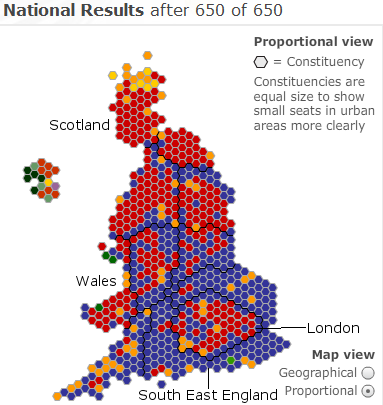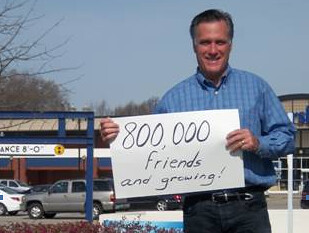Crossposted from the Worldwatch Institute’s Nourishing the Planet.
Increasing demand for water continues to put a strain on available water sources, threatening the livelihood of millions of small-scale farmers who depend on water for their crops. At a time when one in eight people lack access to safe water, Nourishing the Planet points to low-cost, small-scale innovations to better manage this vital resource. These efforts are increasing the availability of water for crops and helping farmers improve crop productivity and become more food-secure.
 Seventy percent of the world’s freshwater is used for irrigation, and global water resources are drying up as climate change takes hold and population growth continues. 60 percent of the world’s hungry people live in South Asia and sub-Saharan Africa-most of them on small farms-where they do not have a reliable source of water to produce sufficient yields. Only 4 percent of the cultivated land in sub-Saharan Africa is currently equipped for irrigation. 95 percent of cropland in the region depends on rain, and climate scientists predict that rainfall on the continent will decline in the coming decades. But there is great potential to expand irrigation with small-scale solutions.
Seventy percent of the world’s freshwater is used for irrigation, and global water resources are drying up as climate change takes hold and population growth continues. 60 percent of the world’s hungry people live in South Asia and sub-Saharan Africa-most of them on small farms-where they do not have a reliable source of water to produce sufficient yields. Only 4 percent of the cultivated land in sub-Saharan Africa is currently equipped for irrigation. 95 percent of cropland in the region depends on rain, and climate scientists predict that rainfall on the continent will decline in the coming decades. But there is great potential to expand irrigation with small-scale solutions.
The Green Revolution of the 1960s led to a near tripling of global grain production and a doubling of the world’s irrigated area. It also, however, demanded vast quantities of water. Previous agricultural investments have focused narrowly on increasing crop yields, while there has been relatively little research and investment in ways to make better use of scarce water resources. Affordable innovations that boost agricultural development and meet the increasing demand on already-scarce water resources while also mitigating the impacts of climate change, are more important than ever.
Nourishing the Planet recommends three models for effective water management that have the potential for getting ‘more crop per drop’:
Human-powered pumps. The foot-operated treadle pump enables 2.3 million farmers in the developing world-some 250,000 in sub-Saharan Africa-to boost crop productivity, improve harvest reliability, and raise incomes. The original $35 version can irrigate 0.2 hectares with ground water; newer models can irrigate up to 0.8 hectares and cost no more than $140 installed. These devices already generate $37 million a year in profits and wages. In Zambia, International Development Enterprises worked with farmers to determine the most effective type of pump. The Mosi-O-Tunya pump is manufactured locally and delivers 25 percent more water per second than older versions.
Affordable micro-irrigation. A suite of low-cost drip irrigation technologies is helping farmers use limited water supplies more efficiently, often doubling water productivity. These systems deliver water directly to the plant roots through perforated pipes or tubes, and can come in the form of $5 bucket kits, $25 drum kits, or $100 shiftable drip systems that irrigate up to 0.2 hectares. Solar-powered micro-irrigation drip systems are also making their debut in West Africa. One study found that after a year of using these systems, villagers in Benin had higher incomes and protein in their diets. Children attended school more often, since they no longer needed to spend their day collecting water.
More effective use of rainfall. Conservation tillage methods that leave the soil intact; timely weeding and mulching; and planting vegetative barriers all help to maximize green water, or rainwater stored in the soil and plants as moisture. Rainwater harvesting using small earthen dams and other methods also helps maximize rainwater utility. Supplementing these practices with irrigation may produce optimal results. In Kenya, Maasai women are working with the U.N. Environment Programme and the World Agroforestry Centre to build rooftop catchment tanks, which provide water for their households and save women time collecting water.
Satisfying the water requirements of the future, while also coping with population growth, increasing consumption, persistent poverty, and a changing climate, will take a commitment well beyond what has materialized to date. Support-and research and investment-from governments, development agencies, and international and national NGOs can help make such technologies more accessible to smallholder farmers.
To purchase State of the World 2011: Innovations that Nourish the Planet please click HERE.
To watch the one minute book trailer click HERE.


 Seventy percent of the world’s freshwater is used for irrigation, and global water resources are drying up as climate change takes hold and population growth continues. 60 percent of the world’s hungry people live in South Asia and sub-Saharan Africa-most of them on small farms-where they do not have a reliable source of water to produce sufficient yields. Only 4 percent of the cultivated land in sub-Saharan Africa is currently equipped for irrigation. 95 percent of cropland in the region depends on rain, and climate scientists predict that rainfall on the continent will decline in the coming decades. But there is great potential to expand irrigation with small-scale solutions.
Seventy percent of the world’s freshwater is used for irrigation, and global water resources are drying up as climate change takes hold and population growth continues. 60 percent of the world’s hungry people live in South Asia and sub-Saharan Africa-most of them on small farms-where they do not have a reliable source of water to produce sufficient yields. Only 4 percent of the cultivated land in sub-Saharan Africa is currently equipped for irrigation. 95 percent of cropland in the region depends on rain, and climate scientists predict that rainfall on the continent will decline in the coming decades. But there is great potential to expand irrigation with small-scale solutions.



